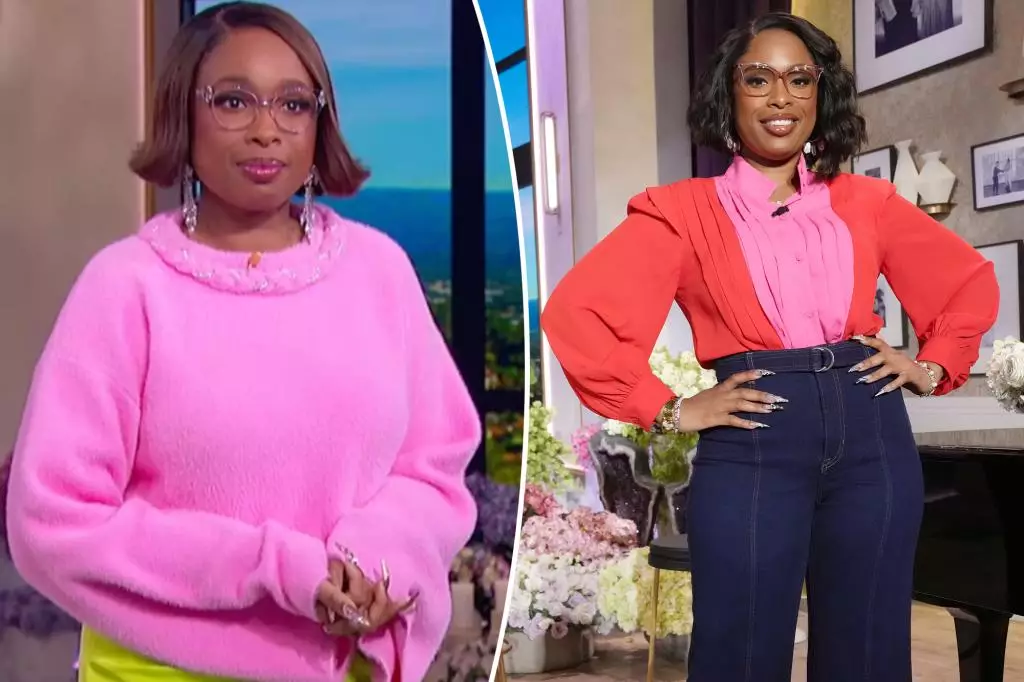In the ever-evolving world of fashion, trends rise and fall in a cyclically dizzying dance, with some returning decades later to either nostalgic adoration or collective disdain. Recently, the conversation pivoted dramatically when Jennifer Hudson, renowned actress and singer, publicly expressed her aversion to low-rise jeans during a segment of her talk show. Her blunt commentary strikes a chord, illuminating a rift in fashion preferences that seems to be shaping today’s discourse among different generations.
Parting Ways with Gen Z Trends
On her show, Hudson didn’t just critique low-rise jeans; she passionately articulated her preference for higher-waisted pants, equating the low-rise style with negative feelings. “I like my pants up here,” she asserted, physically pointing to her chest to underscore her point. The authenticity of Hudson’s feelings resonates with many who feel trapped between the nostalgic allure of Y2K fashion and the modern need for comfort and confidence in what we wear. Her phrase “bitter bitch” struck a comedic note, yet it also captures a sentiment many share—a disenchantment with a trend that feels impractical and unflattering for those who live life beyond their twenties.
Cultural Commentary through Fashion
The clash of generations over low-rise jeans embodies broader cultural dynamics at play. As Gen Z attempts to revive the trend, Hudson and other millennials, along with Gen X stalwarts like Jessica Chastain, resist the call of the past. Chastain’s remarks about the style being “tacky” and “horrific” further highlight this divide, blurring the lines between personal preference and fashion responsibility. Fashion is not just about aesthetics; it’s also linked to self-expression and comfort. Hudson’s candid perspective provides a refreshing reminder that style often transcends mere fabric; it reflects one’s identity and emotional state.
A Collective Response
Interestingly, the audience response echoed Hudson’s sentiments, revealing a community united in their disdain for low-rise jeans. Social media interactions showed a spectrum of agreement among fans, with many expressing that this style trend does not align with their personal preferences. This digital dialogue reinforces the idea that Hudson’s views are not merely personal; they voice collective discomfort that challenges the current fashion narrative promoted by younger influencers.
Fashionable Authenticity
Ultimately, Hudson’s critique serves as a powerful statement about the empowerment found in authentic self-expression. In an era where fashions can often feel dictated by fleeting trends rather than personal choice, her on-air proclamation is a reminder that comfort and personal style should reign supreme. As more voices join the conversation around appropriate attire and body positivity, it poses an intriguing question: should fashion be a reflection of our individual comfort, or must we cater to the whims of trendy reinventions? Hudson’s forthrightness undoubtedly invites a deeper examination into how we define style amidst changing tides.

